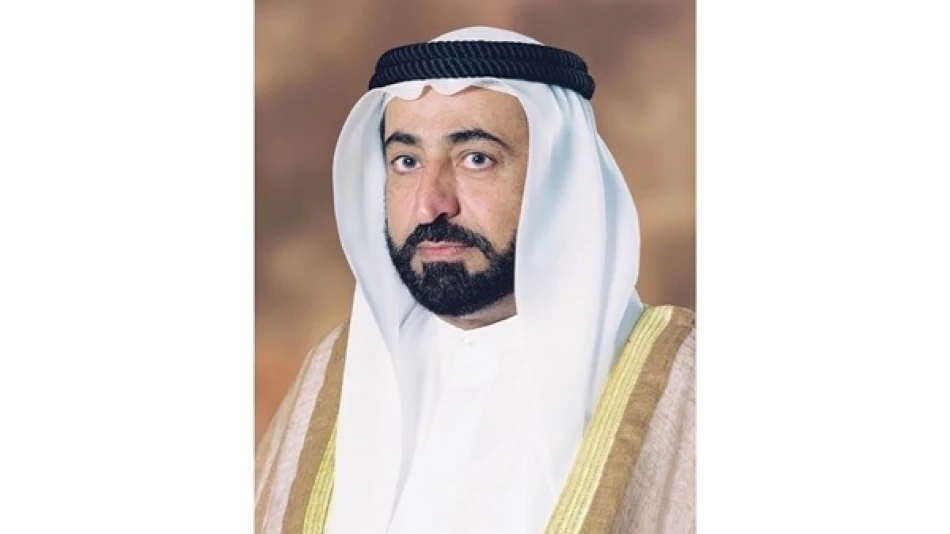
Sheikh of Sharjah Establishes Wadi Al Hulu Council, Enhancing Development and Community Engagement
Sharjah Ruler Establishes New Regional Council to Strengthen Local Governance
Sheikh Dr. Sultan bin Mohammed Al Qasimi, Ruler of Sharjah and member of the UAE's Supreme Council, has issued an Emiri decree establishing the Wadi Al Helu Council within the emirate. The move reflects the UAE's broader strategy of decentralizing governance and empowering local communities to manage regional affairs more effectively.
Council Formation and Leadership Structure
The newly formed council will be chaired by Dr. Ahmed Said Khamis Al Mazrouei, with six additional members appointed to represent the community. The council includes Ahmed Salem Ahmed Al Mazrouei, Rashid Said Mohammed Al Mazrouei, Said Mohammed Saif Al Mazrouei Sultan, Saif Khamis Al Mazrouei, Youssef Khamis Said Al Mazrouei, and Maryam Mohammed Said Al Mazrouei.
The composition notably includes both male and female representation, aligning with the UAE's ongoing efforts to enhance women's participation in governance structures across all levels of government.
Strategic Significance for Regional Development
Decentralization Trend Across the Emirates
This council formation fits within a broader pattern of administrative decentralization across the UAE's seven emirates. Similar local councils have been established in various regions to bring decision-making closer to communities and address specific regional needs more efficiently.
Wadi Al Helu, located in Sharjah's eastern region, represents an area of growing strategic importance due to its position along key transportation routes and its potential for economic development. The establishment of a dedicated council suggests the emirate's commitment to unlocking this region's economic potential.
Economic Development Implications
Local councils in the UAE typically focus on infrastructure development, business licensing facilitation, and community services coordination. For Wadi Al Helu, this could translate into accelerated development of transportation networks, utility infrastructure, and business-friendly policies that attract investment to the region.
The timing of this council's establishment coincides with Sharjah's broader economic diversification efforts, as the emirate seeks to reduce its dependence on traditional industries while developing new sectors including logistics, manufacturing, and services.
Governance Model and Regional Comparisons
The UAE's approach to local governance through appointed councils differs from fully elected municipal systems seen in other Gulf states, but provides direct accountability to emirate leadership while ensuring local representation. This hybrid model has proven effective in balancing central oversight with community input across the federation's diverse regions.
Similar regional development councils in neighboring emirates have successfully facilitated infrastructure projects, streamlined government services, and fostered economic growth in previously underdeveloped areas, suggesting a proven template for Wadi Al Helu's advancement.
Most Viewed News

 Layla Al Mansoori
Layla Al Mansoori






